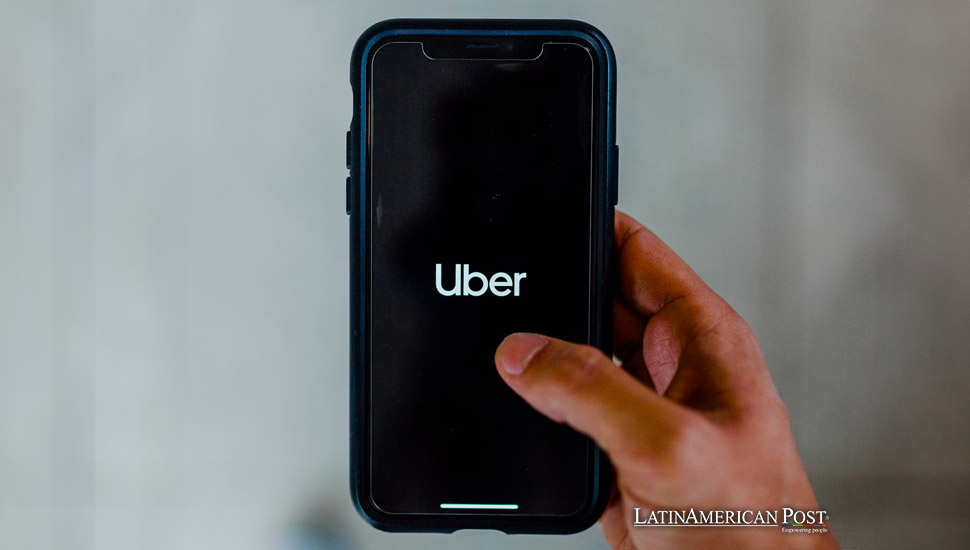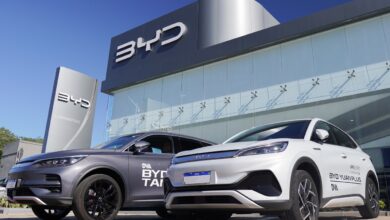Uber and BYD Join Forces to Electrify Latin America

Uber and BYD’s new partnership offers pricing and financing deals on electric cars in Latin America and Europe, aiming to bring 100,000 BYD vehicles to Uber’s platform and promote a greener, cleaner future.
In a landmark agreement poised to transform urban mobility in Latin America, Uber and BYD have announced a strategic partnership that will provide ride-hailing drivers with pricing and financing deals for BYD’s electric cars. Starting in Europe and Latin America, this collaboration aims to make sustainable transportation accessible and heralds a significant shift towards greener cities across the region.
A New Era for Electric Mobility
The multi-year partnership between Uber and BYD, the Chinese electric vehicle (EV) giant, is set to bring 100,000 BYD cars to Uber’s global platform. This deal, the largest worldwide, underscores both companies’ commitment to innovation and sustainability.
Uber CEO Dara Khosrowshahi expressed enthusiasm about the partnership, highlighting its potential to benefit drivers, riders, and cities. “As the largest global agreement of its kind, we’re thrilled about the benefits this partnership will deliver for drivers, riders, and cities,” Khosrowshahi stated.
BYD, headquartered in Shenzhen, has already established itself as China’s EV market leader, surpassing Tesla in vehicle production for two consecutive years. The company is now accelerating its overseas expansion, including significant factory investments. BYD chairman and president Chuanfu Wang echoed the sentiment of excitement, stating, “Uber and BYD share a commitment to innovate towards a cleaner, greener world, and I am excited to work together towards that future.”
Impact on Latin America
Latin America stands to gain significantly from this partnership. The region faces numerous environmental challenges, including urban pollution and a growing need for sustainable transportation solutions. This initiative promises to reduce emissions and promote cleaner air in major cities by providing Uber drivers with affordable access to BYD’s electric vehicles.
Latin American cities like São Paulo, Mexico City, and Buenos Aires are notorious for their traffic congestion and pollution. Uber’s introduction of a large fleet of electric vehicles (EVs) could play a crucial role in mitigating these issues. These cities are already witnessing a gradual shift towards sustainable practices, and the Uber-BYD partnership could accelerate this transition, making electric mobility more mainstream.
Financial and Environmental Benefits
The financial aspects of the deal are particularly appealing to drivers. Electric vehicles often have lower operating costs compared to traditional gasoline-powered cars. Savings on fuel and maintenance can significantly enhance the profitability of Uber drivers, many of whom operate on tight margins. Additionally, the financing deals offered through this partnership make it easier for drivers to afford the upfront costs associated with purchasing an EV.
From an environmental perspective, the widespread adoption of EVs in Latin America could substantially reduce greenhouse gas emissions. This aligns with global efforts to combat climate change and adhere to international agreements like the Paris Accord. The Uber-BYD collaboration thus represents not just a business venture but a critical step towards achieving broader environmental goals.
Technological Advancements and Future Plans
Beyond the immediate benefits of introducing electric cars, Uber and BYD’s partnership also focuses on future technological advancements. The two companies have announced plans to develop “autonomous-capable vehicles” for Uber’s platform. While fully autonomous driving remains a complex challenge, the move toward such technology could revolutionize the ride-hailing industry.
Stella Li, executive vice president at BYD and CEO of BYD Americas, highlighted the significance of this collaboration: “This collaboration marks a new era in the electrification of urban mobility, and we look forward to seeing our cutting-edge EVs become a common sight on the streets of cities worldwide.”
Initially, the partnership will focus on deploying three specific models: the BYD Seal sedan, Seal U SUV, and Atto 3 SUV. These models are already listed on BYD’s Europe website and are well-suited for the demands of urban ride-hailing services.
BYD’s Expanding Global Footprint
BYD’s global expansion is a critical element of this partnership. Last year, BYD exported over 240,000 cars to 70 countries, and the company aims to double that number more than this year. Given the region’s increasing demand for sustainable transportation solutions, Latin America is a critical market for BYD’s growth strategy.
In 2020, BYD custom-built an electric car called the D1 for Chinese ride-hailing operator Didi. This model was later introduced in Brazil through Didi’s local subsidiary, 99. Such initiatives demonstrate BYD’s capability to cater to specific market needs and adapt its products for various international contexts.
Challenges and Opportunities
Despite the promising aspects of the Uber-BYD partnership, there are challenges to consider. The recent increase in tariffs on Chinese-made electric cars by the EU and the US presents a potential obstacle. These tariffs could affect the pricing and availability of BYD vehicles in specific markets. However, the strategic partnership’s focus on Latin America, where tariff barriers might be less restrictive, could mitigate some of these concerns.
Additionally, while the move towards autonomous-capable vehicles is exciting, the technology and regulatory framework for fully autonomous driving are still evolving. BYD’s cautious approach, acknowledging the current limitations of autonomous technology, suggests a realistic and phased integration into its offerings.
The Uber-BYD partnership is set to expand beyond Latin America and Europe, with plans to cover the Middle East, Canada, Australia, and New Zealand. This global approach underscores the potential for widespread adoption of electric vehicles and the transformation of urban mobility worldwide.
The initiative also aligns with broader trends in the automotive and tech industries, where collaborations between ride-hailing platforms and EV manufacturers are becoming increasingly common. These partnerships are crucial for accelerating the shift towards sustainable transportation and achieving significant environmental impacts.
The partnership between Uber and BYD marks a significant milestone toward sustainable urban mobility in Latin America and beyond. By providing affordable access to electric vehicles, this collaboration promises to reduce emissions, improve air quality, and offer financial benefits to Uber drivers. As Latin American cities grapple with pollution and traffic congestion, introducing BYD’s electric cars through Uber could catalyze the broader adoption of sustainable practices.
Also read: U.S. Plans Chip Development in Latin America Amid Growing Global Competition
With a focus on future technological advancements and a commitment to environmental stewardship, Uber and BYD are setting a new standard for the ride-hailing industry. As the world moves towards a greener future, such collaborations will be essential in driving the necessary changes. The Uber-BYD partnership is not just about business; it represents a forward-thinking approach to solving some of the most pressing challenges of our time, paving the way for a cleaner, more sustainable world.





